Following shortly after a similar offtake deal with US e-SAF startup Twelve, International Airlines Group (IAG), the owner of British Airways, Iberia, Aer Lingus, Vueling and LEVEL, has announced a 10-year agreement to purchase power-to-liquid aviation fuel, or e-SAF, from California-based Infinium. The volume and value of the deal were not disclosed, but the e-SAF will be produced at the clean-tech company’s Project Roadrunner plant, a former gas-to-liquids facility currently being converted in West Texas. Infinium says the plant will become the world’s biggest e-SAF facility once it is fully operational. The company has backing from Amazon’s Climate Pledge Fund and Bill Gates’ Breakthrough Energy Catalyst, and in September it raised a potential $1 billion through Brookfield Asset Management towards Roadrunner and the deployment of other e-fuel projects globally. It also has a strategic deal with American Airlines for delivery of commercial volumes starting in 2026.
“Long-term, bankable commitments like these are what drive the ability to ramp up production of e-SAF,” commented Robert Schuetzle, Infinium’s CEO, on the IAG agreement.
IAG claims its airlines used an estimated 12% of global SAF supplies last year. The new deal will enable the company to access Infinium’s e-SAF for any of its five airlines, which collectively operate 582 aircraft to more than 250 destinations in 91 countries.
“So far, we’re on track to deliver our 10% 2030 SAF goal,” said Jonathon Counsell, IAG’s Group Sustainability Officer, “and agreements with innovators like Infinium are key to reaching this target.”
Aviation’s focus on e-SAF has intensified as global demand for SAF increases dramatically and as the EU prepares to activate a 2% fuel blending mandate for flights from its airports from 1 January. EU mandates will progressively escalate, climbing to 70% by 2050. Other governments, including the UK, are following, initially with mandates varying from 1% to 10% by 2030. Both the UK and EU SAF mandates will add a power-to-liquid requirement from 2028 and 2030 respectively.
Of the Infinium investment secured from Brookfield Asset Management, more than $200 million is earmarked for developments including Project Roadrunner and up to $850 million more for deployment of other Infinium e-fuel projects globally, all subject to pre-agreed metrics.
Breakthrough Energy Catalyst has also committed $75 million in project level equity to Project Roadrunner, its first announced equity investment. Breakthrough pulls together corporate and philanthropic organisations to expedite the use of new technologies by supporting clean technology innovation in commercial-scale projects.
American Airlines, the world’s largest carrier and a partner of multiple IAG airlines in the oneworld marketing alliance, has also entered a strategic partnership with Infinium to secure commercial volumes of e-SAF produced by Project Roadrunner.
Announcing their new deal, IAG and Infinium highlighted the abundance of CO2 either captured at the source of industrial production, extracted from biogenic waste or sucked directly from the atmosphere by giant fans.
“This new class of fuel is not encumbered by feedstock limitations, has a higher degree of emissions reduction versus conventional jet fuel, and has a relatively low land and water use footprint,” said the companies.
IAG’s Counsell urged regulators to focus on measures to encourage decarbonisation of air transport, rather than increase costs for the sector.
“Aviation as an industry is working hard to decarbonise and policy should focus on solutions such as SAF, rather than only increasing costs which risk affecting the competitiveness of the European aviation industry,” he said.
“What the industry needs is additional policy support to attract funds to construct SAF plants and reduce aviation’s reliance on fossil fuels.”
The IAG-Infinium deal follows the formation of Project SkyPower by a high-profile coalition of European companies including airlines, airports, energy companies and financiers to advocate for development of an e-SAF industry in Europe.
A report produced by the group in May argued that e-SAF is the most effective, and eventually the most affordable, pathway to low-carbon flight and urged governments to develop policies that reduced investment risk in infrastructure development and fuel production before SAF mandates are activated.
It also estimated that capital investment of €15 billion to €25 billion ($16-27bn) would be needed by 2030, and a further €3 billion to €5 billion annually to achieve the scale needed to meet ever-increasing SAF blending mandates.
“It typically takes five years for an e-SAF project between reaching final investment decision and being operational,” said the report. “Therefore, final investment decisions for e-SAF projects are needed by 2025 to start production by 2030.”
Photo: Infinium’s Project Roadrunner facility in West Texas


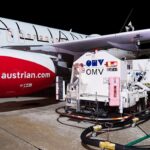

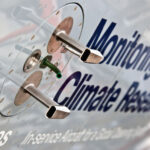



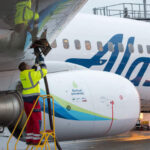
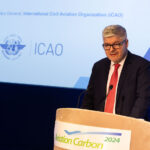

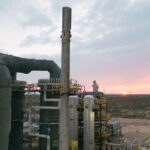

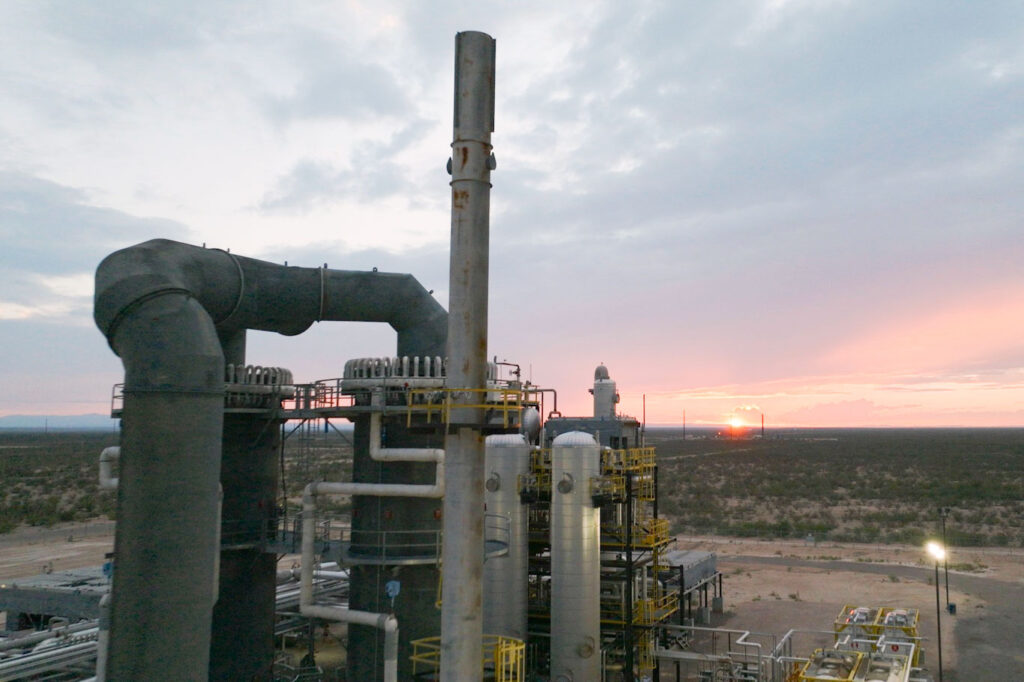


More News & Features
Progress on decarbonising the airline sector has been slow this year, says IATA chief
EASA releases status report on Europe’s SAF production and readiness to meet blending targets
UK government sets out new Jet Zero focus and launches consultation on CORSIA global emissions scheme
European and US research programmes expand to better understand aviation non-CO2 climate effects
T&E joins aviation and climate scientists in urging action to reduce warming contrails
New study highlights differing strategies and barriers to decarbonising aviation in UK and Europe